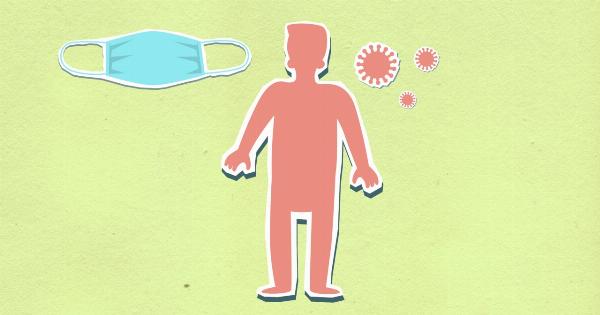The respiratory infection is a common health concern that affects millions of people around the world. However, while most of us think of respiratory infections caused by viruses or bacteria, fungal infections are also a significant threat.
In fact, respiratory fungal infections have become increasingly common in recent years and can lead to severe health complications in many cases. In this article, we will discuss the dangers of respiratory fungal infections, their causes, symptoms, diagnosis, and treatment.
What are Fungal Respiratory Infections?
Fungal respiratory infections are caused by fungi that enter the lungs or respiratory system and start to reproduce. Fungal spores are everywhere in the environment, and we inhale them every day.
Most of the time, our immune system is strong enough to fight off any fungal invaders before they cause any harm. But if our immune system is weakened, either due to a pre-existing medical condition or medication, fungal spores can grow and multiply, leading to respiratory infections.
Causes of Fungal Respiratory Infections
Several types of fungi can cause respiratory infections, including Aspergillus, Candida, and Cryptococcus. Some of the most common causes of fungal respiratory infections include:.
- Aspergillosis: This is caused by the Aspergillus fungus and is commonly found in soil, plant debris, and many other environments. If inhaled, Aspergillus spores can cause lung infections, allergic reactions, and asthma-like symptoms.
- Candidiasis: This is caused by the Candida fungus and is typically found in the mouth, skin, or gut. However, it can also cause respiratory infections if the spores are inhaled.
- Cryptococcosis: This is caused by the Cryptococcus fungus and is typically found in soil and bird droppings. If inhaled, the spores can lead to severe infections that affect the brain and lungs.
Symptoms of Fungal Respiratory Infections
The symptoms of fungal respiratory infections can vary depending on the type of fungus and severity of the infection. However, some common symptoms include:.
- Coughing
- Sneezing
- Shortness of breath
- Wheezing
- Chest pain
- Fever
- Night sweats
- Weight loss
Diagnosis of Fungal Respiratory Infections
Getting the right diagnosis for fungal respiratory infections is crucial to ensure the correct treatment. To diagnose a fungal respiratory infection, a doctor will typically ask about your symptoms and medical history.
They may also order some tests, such as:.
- Chest X-ray or CT scan: These imaging tests can provide a detailed image of your lungs and help the doctor identify any abnormalities.
- Sputum culture: This test involves collecting a sample of mucus from your lungs and growing it in a laboratory to identify any fungi present.
- Bronchoscopy: This involves inserting a long, thin tube with a camera down your throat and into your lungs to take a closer look at the affected area.
- Blood tests: These can help identify the cause of respiratory infection by testing for antibodies or antigens in your blood.
Treatment for Fungal Respiratory Infections
The treatment for fungal respiratory infections can vary depending on the type and severity of the infection. Some common treatments include:.
- Antifungal medications: These medications can help kill the fungus causing the infection. Depending on the type of fungus, your doctor may prescribe a different antifungal medication.
- Corticosteroids: These medications can help reduce inflammation in the lungs, making it easier to breathe.
- Oxygen therapy: If you’re having difficulty breathing, your doctor may prescribe oxygen therapy to help you breathe more easily.
- Surgery: In some cases, surgery may be required to remove infected tissue from the lungs.
Preventing Fungal Respiratory Infections
Preventing fungal respiratory infections can sometimes be challenging, but there are steps you can take to reduce your risk. Some common prevention measures include:.
- Avoiding areas with a high risk of fungal infections, such as construction sites or areas with bird droppings.
- Using an air filter to remove fungal spores from the air.
- Avoiding contact with people who have a respiratory infection.
- Washing your hands frequently and avoiding touching your face or mouth.
- Taking antibiotics only when necessary, as they can weaken your immune system and increase your risk of fungal infections.
Conclusion
Fungal respiratory infections are a growing concern for many people around the world.
These infections can lead to severe health complications if left untreated, making it essential to seek medical help as soon as possible if you suspect you have a fungal respiratory infection. By taking precautions to reduce your risk, you can help protect yourself and your family from this fungal menace.




























